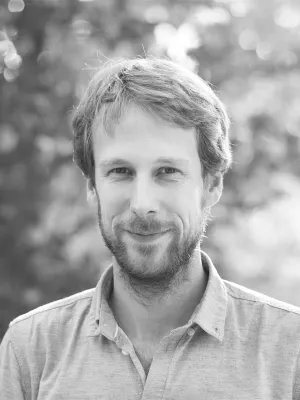
Thomas Hickmann
Docent | Biträdande universitetslektor

Pathways to Urban Sustainability : How Science Can Contribute to Sustainable Development in Cities
Författare
Summary, in English
Pressing sustainability challenges reinvigorate calls for scientific actors to strengthen their profile as change agents. Focusing on the urban context, we point to four forms of science-policy-society interactions as key pathways to advance the sustainability transformation in cities.
Recent years have seen a considerable broadening of the ambitions in urban sustainability policy-making. With its Sustainable Development Goal (SDG)11 Making cities and human settlements inclusive, safe, resilient and sustainable, the 2030 Agenda stresses the critical role of cities in achieving sustainable development. In the context of SDG17 on partnerships, emphasis is also placed on the role of researchers and other scientific actors as change agents in the sustainability transformation. Against this backdrop, this article sheds light on different pathways through which science can contribute to urban sustainability. In particular, we discern four forms of science-policy-society interactions as key vectors: 1. sharing knowledge and providing scientific input to urban sustainability policy-making; 2. implementing transformative research projects; 3. contributing to local capacity building; and 4. self-governing towards sustainability. The pathways of influence are illustrated with empirical examples, and their interlinkages and limitations are discussed. We contend that there are numerous opportunities for actors from the field of sustainability science to engage with political and societal actors to enhance sustainable development at the local level.
Recent years have seen a considerable broadening of the ambitions in urban sustainability policy-making. With its Sustainable Development Goal (SDG)11 Making cities and human settlements inclusive, safe, resilient and sustainable, the 2030 Agenda stresses the critical role of cities in achieving sustainable development. In the context of SDG17 on partnerships, emphasis is also placed on the role of researchers and other scientific actors as change agents in the sustainability transformation. Against this backdrop, this article sheds light on different pathways through which science can contribute to urban sustainability. In particular, we discern four forms of science-policy-society interactions as key vectors: 1. sharing knowledge and providing scientific input to urban sustainability policy-making; 2. implementing transformative research projects; 3. contributing to local capacity building; and 4. self-governing towards sustainability. The pathways of influence are illustrated with empirical examples, and their interlinkages and limitations are discussed. We contend that there are numerous opportunities for actors from the field of sustainability science to engage with political and societal actors to enhance sustainable development at the local level.
Publiceringsår
2019
Språk
Engelska
Sidor
112-118
Publikation/Tidskrift/Serie
GAIA
Volym
28
Issue
2
Dokumenttyp
Artikel i tidskrift
Förlag
Oekom Verlag
Ämne
- Political Science
Nyckelord
- SDG 11
- Cities
- science-policy interactions
- Sustainable development
- Urban sustainability
Status
Published
ISBN/ISSN/Övrigt
- ISSN: 0940-5550

